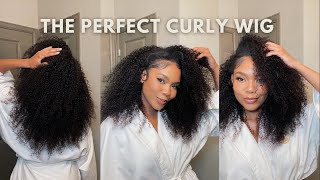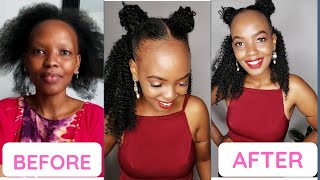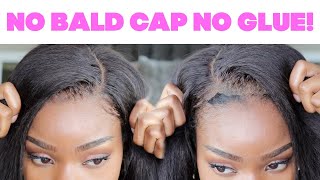The Benefits Of And How To Henna Relaxed And Natural Hair Part 1
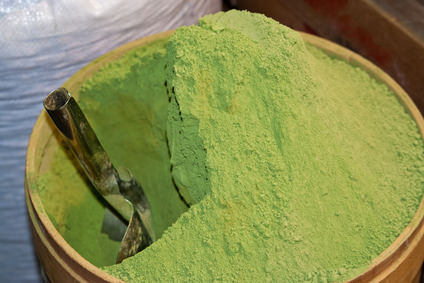 Recently we have been taking a look at Ayurvedic hair care and there’s no denying how interesting the practice of Ayurveda is and the benefits of incorporating aspects of it into our hair regimens.
Recently we have been taking a look at Ayurvedic hair care and there’s no denying how interesting the practice of Ayurveda is and the benefits of incorporating aspects of it into our hair regimens.
In continuing the trend one of the hands down most talked about herbal treatments for natural and relaxed hair care is henna*. Henna is best known for its dye properties and is often used for body art in the form of henna tattoos and to color and condition hair when used as a hair treatment.
Personally I love henna, I love how my hair feels after a good treatment and I really love the fact that there is a henna* salon up the street that will mix and apply my henna for a couple of bucks. If you don’t have that convenience then it pays to know a little bit about henna, that is, how to reap maximum benefits from it and how to safely incorporate it in your hair regimen.
What is Henna
Henna is a plant that is found in dry hot areas, and according to certain studies it was used as a hair dye for grey hair and conditioning as far back as 8000 years ago.
The henna plant is prepared through a process of drying and powdering the leaves so that the dye molecule (lawsone) found in the plant can be safely extracted. The powder is often mixed with something acidic to help release the dye that is used to create all those awesome body art images aka henna tatoos and to give hair a rich reddish color that is radiant in the sunshine.
It is recommended that when using henna you use it in its purest most natural form. Some unscrupulous manufacturers are known for mixing henna with toxic metal salts and other unhealthy ingredients to form a variety of hair dye colors that can sometimes cause fatal allergic reactions.
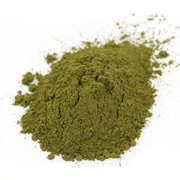 Just bear in mind that pure natural henna* of the highest quality only comes in one color and should not have any variation as opportunists would have you believe. Black henna is simply not henna.
Just bear in mind that pure natural henna* of the highest quality only comes in one color and should not have any variation as opportunists would have you believe. Black henna is simply not henna.
Here is a fun fact, did you know that Lucille Ball from ‘I Love Lucy” used henna to get her famous red hair? she dyed her hair using pure henna and at that time getting it in its purest form was rare in areas such as the United States, which is a far cry from how things are now.
How Does Henna Work
This will involve a little science so put on your left brain thinking caps on. The Henna molecule lawsone like water, and coconut oil is small enough to penetrate the hair shaft.
Because of lawsone’s high affinity for keratin, once you apply the paste to your hair the dye molecule migrates into the shaft binding with the keratin within. This binding effect not only strengthens your hair but allows the color to pretty much stick to the strand leaving it with a rich red color.
Henna* molecules binding with keratin is what makes it most like a protein treatment, because the dye helps to fill gaps and holes created in our hair shafts as a result of day to day styling. This is also the reason why henna is considered a permanent color treatment. While a little henna may be lost with each consecutive wash, it’s usually impossible to completely remove henna from your hair.
Another fun fact. A henna tattoo is technically a permanent tattoo. The reason it fades is that you are constantly losing skin cells and as the cells containing henna are lost, your tattoo fades.
Another thing to note is that your hennaed head will more than likely look different from another woman’s hennaed head even though the dye is the same color. The color that you get depends entirely on what color your hair was to begin with and how much of the lawsone bonds to your hair.
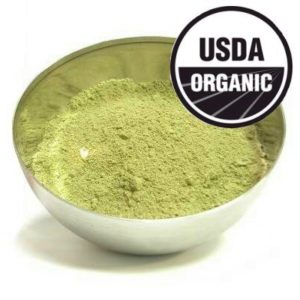 How Henna* Benefits Hair
How Henna* Benefits Hair
Most of the pro’s surrounding henna center around having stronger hair due to the binding action of the molecules with hair keratin within the hair shaft. Other reports include thicker, shinier and smoother hair.
The smoothness is also due to the binding effects of the dye as it fills in any rough spots or frayed areas of the hair strand. Other benefits include its non fading red color but that depends on what you like. Personally I only like the color when my hair is at its darkest which comes with many henna* treatments layered over time.
Another major benefit is the ability to color your hair without synthetic chemicals. With no harsh additives, you can pretty much use henna as often as you want with no fear of the harmful effects of the color. This is especially great for women who want to cover grey hair and have to color more often than what is considered ideal.
Cons Of Henna
There are some disadvantages to using henna and it would be wrong not to mention them. Henna is known to sometimes be drying to the hair which is the same as it would be if you were to do a hard protein treatment. It is almost imperative that you follow up any henna application with a moisturizing deep treatment to restore moisture to the hair.
Other complaints include loss of curl pattern on natural hair, this is however not universal to all curl patterns, if there was any consistency it might be with women who tend to have fine hair where the weight of the dye can loosen the curl to the point of it being straight.
Henna applications are also time consuming, the dye doesn’t have the best smell (kind of like wet grass) and the color could potentially stain your bathroom walls, floor and tub if you don’t use proper precautions.
In Part 2 we will explore how to mix and apply henna to the hair for both natural and relaxed ladies as well as look at a few of our favorite hair gurus who use henna as a normal part of their regimen.

